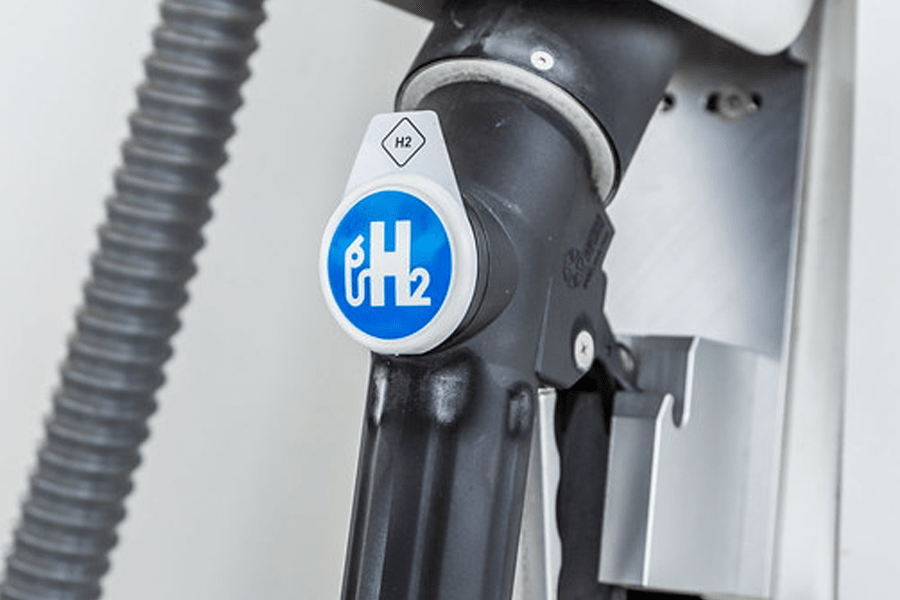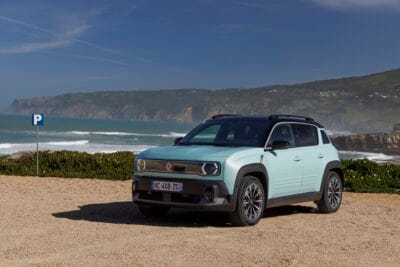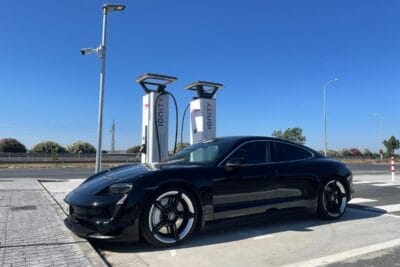H2 Mobility to close three hydrogen fuel stations in Germany
According to the H2 Mobility website, the hydrogen refuelling stations in Derching near Augsburg and in Wuppertal will also be permanently disconnected from the grid on 1 April and 1 June, respectively. An “important notice” can be found for all three cities. In the case of Koblenz, it reads: “This filling station will be permanently taken off the grid on 1 April 2024. We will be building new stations and upgrading existing petrol stations in the future. Selected sites will be decommissioned, and as many system components as possible will be recycled. With these measures, we are creating the conditions for a modern, efficient H2 refuelling station network of the future. We wish you continued safe and pleasant journeys. Your H2 MOBILITY Team”.
A corresponding sign with the same text has also been erected at the hydrogen refuelling station on the site of a motorway service station on the A61 motorway, as photos from SWR show. The Koblenz filling station was opened in 2017 as a “lighthouse project in Rhineland-Palatinate” – at the time, the third hydrogen filling station in Germany. The site was subsidised by the federal government with around 900,000 euros. However, this funding does not have to be repaid: according to H2 Mobility, the period in which this funding had to be used for a specific purpose has expired.
The impact of the three station closures varies. While the loss of the H2 station in Wuppertal on the site of a Shell petrol station only creates a small gap (other stations are located in Düsseldorf, Ratingen, Duisburg, Mülheim an der Ruhr, Essen, Herten and Kamen), the Koblenz site is more relevant locally. The next station on the A61 motorway is in Mönchengladbach or, with a diversion via the A565, in Bonn. In the south, there is not a single H2 petrol station in operation on the A61 up to the Hockenheim junction; Wiesbaden, for example, could be reached via a diversion. The nearest H2 petrol station from Koblenz is in Limburg an der Lahn in the state of Hesse. And in the case of Derching, there is no other hydrogen refuelling station between Ulm and Munich. With a little planning, long-distance journeys are still possible around all three locations, but local users will have to make long detours to refuel their vehicles with hydrogen. And a considerable part of the range will be used up just for the journey to and from the refuelling station.
In the case of Koblenz, age is also likely to have played a role, as the technology of hydrogen refuelling stations has developed enormously in recent years. For example, the compressors have become more efficient, which reduces the energy costs for operating the refuelling station. H2 Mobility is focussing its network expansion on commercial vehicles, which are primarily operated with 350 instead of 700 bar pressure (like cars and vans). However, all three of the locations concerned exclusively offer 700-bar connections, and thus not suitable for heavy commercial vehicles.
At least some hope remains for Koblenz: “Following a thorough review by our company, the continued operation of the site in Koblenz is unfortunately not possible as things stand. If efforts by local stakeholders to keep this filling station open are unsuccessful, this station will unfortunately be taken off the grid on 1 April,” H2 Mobility told the regional publication SWR. However, it remains to be seen whether these efforts by local players will be successful within a few days (or even afterwards).
In Germany, only three petrol stations are on the verge of closure, and H2 Mobility is sticking to its fundamental expansion programme. The situation is different abroad: in February, Shell announced that it would be closing its hydrogen refuelling stations in California, after the energy company closed its sites in the UK in 2022. In Denmark, the operator Everfuel announced in September 2023 that it would be closing its “unprofitable” hydrogen refuelling stations for cars. However, Everfuel also intends to continue operating refuelling stations for heavy commercial vehicles with 350 instead of 700 bar.
swr.de, elektroauto-news.net (both in German)





1 Comment